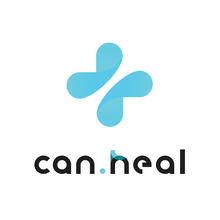Building the EU Cancer and Public Health Genomics platform [1]
In short
 [2]The Europe’s beating cancer plan [3](EBCP) is set out to tackle the entire disease pathway of cancer -from prevention to quality of life of cancer patients and survivors — with the aim to improve prevention, early detection, access to diagnosis and treatment.
[2]The Europe’s beating cancer plan [3](EBCP) is set out to tackle the entire disease pathway of cancer -from prevention to quality of life of cancer patients and survivors — with the aim to improve prevention, early detection, access to diagnosis and treatment.
The CAN.HEAL consortium will address two of the EBCP’s initiatives: ‘Cancer Diagnostic and Treatment for All’ and ‘Genomics for Public Health’. Genomics has become increasingly relevant in cancer medicine. Next-generation sequencing technologies and analytical approaches are now being introduced into the clinic with a multitude of clinical applications, ranging from identifying individual targetable genetic alterations to monitoring treatment response. Within the CAN.HEAL consortium organisations from 17 EU countries will jointly build on ongoing studies to promote the application of genomics to improve diagnosis and treatment of cancer patients as well as to improve our understanding of the individual susceptibility to develop a certain type of cancer.
The final goal of the project is to establish recommendations for initiatives into the EU health system that will further improve the access of individuals and patients to prevention, diagnosis and treatment of cancer through personalised medicine.
Project description
The CAN.HEAL project will build on distinct use cases towards developing an integrated approach to improve access of individuals and cancer patients and survivors to prevention, diagnosis and treatment of cancer through personalised medicine.
The project has two main arms:
- “Genomics for Public Health”, consisting in:
- developing a framework for aligning and integrating the genome of Europe biobanking
- providing polygenic risk score analysis/recommendations for decision support tools and strategies for the implementation of telegenetics and remote genetic counselling
- building clinical utility for cancers in pregnancy, family-based genetic testing in pediatric leukemia, cancer risk stratification
- “Cancer diagnostics and treatment for all”, consisting in developing strategies for:
- wet lab tools
- comprehensive genomic profiling
- data interpretation
- data integration
- decision support (MTB and tools) for early detection
- diagnosis
- and treatment.
The CAN.HEAL project also aims at:
- implementing NGS-based and liquid biopsy assays in clinical practice
- defining key legal and ethical requirements for cancer genomics
- developing training tools
- developing recommendations for the implementation of personalised approaches in the healthcare system
Consortium
Partners
- 17 countries
- 39 Beneficiairies — 7 Affiliated entities — 1 Associated Partner
EBCP Flagships
- F6. Cancer Diagnostic and Treatment for All
Actions
- A1. Modern approach to cancer: new technologies, research and innovation at the service of patient-centred cancer prevention and care
- A2. Saving lives through sustainable cancer prevention
- A3. Improving early detection of cancer
- A4. Ensuring access to high standards in cancer diagnosis and treatment
- A6. Reducing cancer inequalities across the eu
Link to Cancer Mission / recommendations
- R3: Support the development and implementation of effective cancer prevention strategies and policies within Member States and the EU
- R4: Optimise existing screening programmes and develop novel approaches for screening and early detection
- R5: Advance and implement personalised medicine approaches for all cancer patients in Europe
- R9: Achieve Cancer Health Equity in the EU across the continuum of the disease
- R12: Accelerate innovation and implementation of new technologies and create Oncology-focused Living Labs to conquer cancer
Structure

External Partners
![]() Consult our external partners list [6]
Consult our external partners list [6]
Related projects
- Belgian ‘Europe’s Beating Cancer Plan’ Mirror Group [3] (BE EBCP)
- oncNGS [7]
Technical Information
| Work Program | EU4Health |
| Type of Action | Action grants |
| Budget | €6M (€3M/subtopic) |
| Domain / Area | Prevention, Early detection & Screening, Diagnosis & treatments, Paediatric cancers, Inequalities |
Latest news
- Kick-off meeting took place on the 24-25th of November
- Read the press release [8]
Contact us [9]
More information on the project website [4]
Deliverables and publications [5]
Results
The EU-oncology Decision Support Tool (EU-oncDST) concept, developed by Sciensano’s research team, is one of the outcomes of the Can.Heal project. This innovative digital framework is designed to enhance clinical decision-making in oncology by improving the implementation and interoperability of existing oncDSTs, and by facilitating the operation of Molecular Tumour Boards (MTBs) across institutional, national, and EU levels. It also supports the centralisation of patient data, fosters collaboration among stakeholders, and drives innovation in cancer care. The concept is accompanied by a proposed action plan to support its implementation, highlighting the important connection between the deployment of MTBs and the widespread adoption of oncDSTs across Europe.
More details on this work are available in the two deliverables below:
- Deliverable D10.1 assesses the current landscape of oncDST solutions and introduces the EU-oncDST concept. [10]
- Deliverable D10.2 outlines deployment strategies and opportunities for scaling the EU-oncDST concept [11].
As part of Sciensano’s efforts to promote trustworthy genomic data reuse in oncology, a set of ethical recommendations has been developed, grounded in the perspectives of patients, citizens, and professionals across clinical, research, and public health domains. These recommendations are informed by comparing lay and expert values, needs, and concerns, highlighting both shared principles and key divergences between data subjects (the general public) and data users (professionals), thereby identifying critical areas for ethical deliberation in genomic data governance.
The investigation focuses on three central themes:
- Privacy and the protection of personal genomic data
- The management of incidental and secondary findings
- The ethical reuse of genomic data in clinical settings to benefit other patients
You can find more about the recommendations in the final report:
Sciensano's project investigator(s):
Service(s) working on this project
Financial Source

